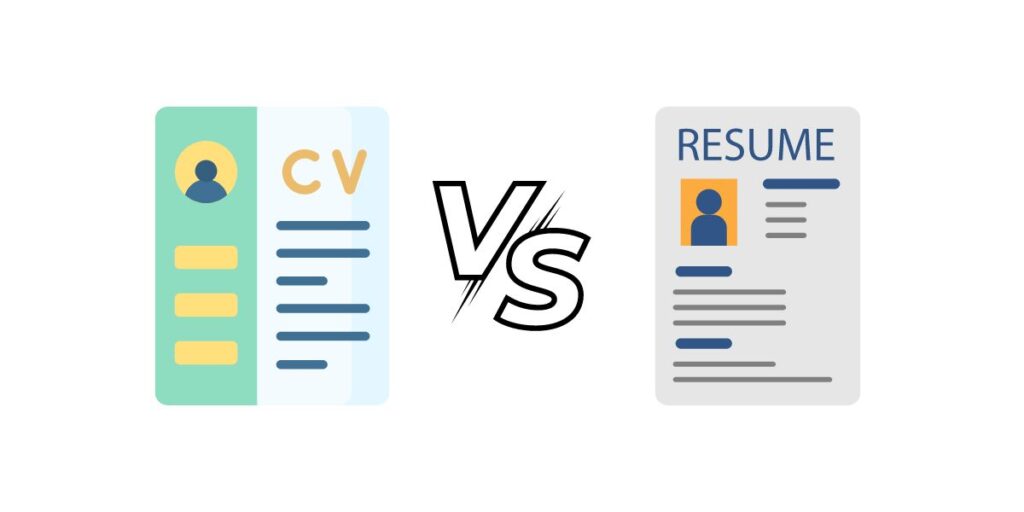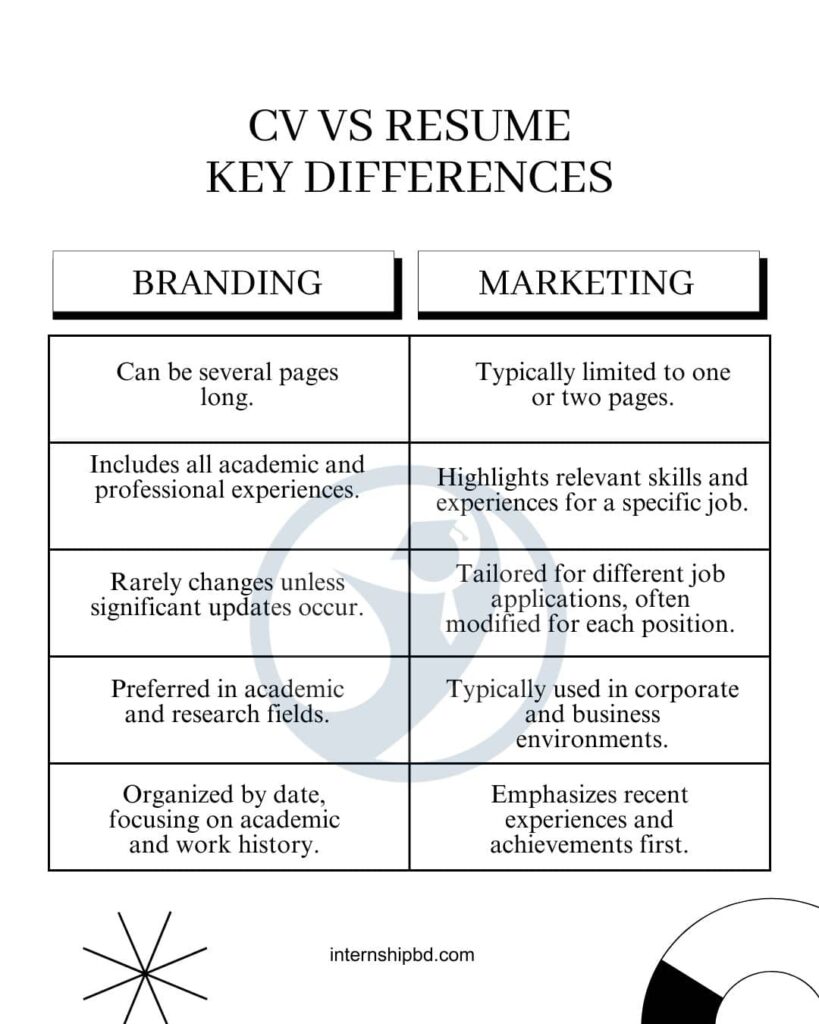
A curriculum vitae (CV) and a resume are both documents used when applying for jobs, but they have some key differences. Let’s explore what each one is and when to use them.
- CV vs Resume: Key Differences in 2024
- What is a CV?
- What is a Resume?
- What are the differences between CV & Resume?
- CV vs. Resume — The Difference Between U.S. & EU
- Conclusion
CV vs Resume: Key Differences in 2024
| Feature | CV | Resume |
|---|---|---|
| Length | Comprehensive (2-3 pages) | Short and concise (1 page, max. 2 pages) |
| Function | Academic purposes (e.g., research, Ph.D.) | Regular job applications in a company |
| Information Included | Academic qualifications, achievements, certifications | Professional achievements, relevant skills, work experience |
| Customization | Universal, can be updated as needed | Tailored for each job application |
| Focus | Academic experiences first, then professional experiences | Professional experiences and skills emphasised |
| Geography | Used mainly in academia, especially in Europe & Asia | Commonly used for job applications, mainly in the U.S. |
| Additional Note | CV may vary in length depending on experience | Resume typically limited to 1 page, max. 2 pages |
What is a CV?
A CV is a comprehensive document that provides an overview of your entire career history, including education, work experience, publications, awards, and other achievements. It is typically several pages long and is used primarily when applying for academic, scientific, or research positions.
Real-life Use Case of A CV
Imagine Marie is applying for a professor position at a university. She will need to submit a CV that lists all of her educational qualifications, teaching experience, published research papers, conference presentations, and any grants or fellowships she has received.
What is a Resume?
A resume is a brief summary of your skills, experience, and qualifications relevant to the job you are applying for. It is usually one to two pages long and is used when applying for most non-academic jobs.
Real-Life Use Case of A Resume
Imagine John is applying for a marketing manager role at a company. He will need to submit a resume that highlights his relevant work experience, skills in marketing and advertising, and any notable achievements or awards related to the position.
What are the differences between CV & Resume?
While both documents are used for job applications, the main difference lies in their purpose and content.
- A CV is a comprehensive record of your academic and professional accomplishments, while a resume is a concise summary of your most relevant skills and experience for a specific job.
- CVs are typically longer and more detailed, while resumes are shorter and more focused.
- CVs are commonly used in academia, research, and education fields, whereas resumes are more commonly used for general job applications in various industries.

CV vs. Resume — The Difference Between U.S. & EU
In the United States, the term “resume” is more widely used and accepted for most job applications, while the term “CV” is primarily used in academia and research fields.
In Europe and many other parts of the world, the terms “CV” and “resume” are often used interchangeably, but a CV is generally more comprehensive and includes more personal information than a resume in the US context.
Conclusion
While CVs and resumes serve similar purposes, they have distinct differences in terms of length, content, and the contexts in which they are used.
Understanding these differences is crucial when applying for jobs, whether in academia or any other industry. Tailor your application materials accordingly to increase your chances of success.
